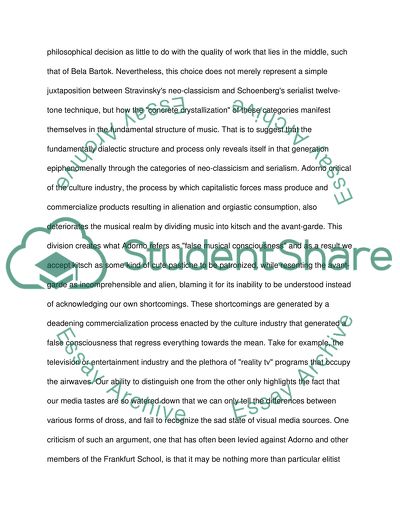Philosophy of Modern Music Book Report/Review Example | Topics and Well Written Essays - 750 words. Retrieved from https://studentshare.org/miscellaneous/1521137-philosophy-of-modern-music
Philosophy of Modern Music Book Report/Review Example | Topics and Well Written Essays - 750 Words. https://studentshare.org/miscellaneous/1521137-philosophy-of-modern-music.


